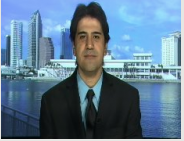With the rise of the Islamic State and similar groups, there exist fundamental questions, regarding the religion of Islam, that I attempt to address adequately in my recently published book, a memoir, on here; why they hate, or Allah (god) who Hates Women.
Is there anything intrinsic within the religion of Islam that promotes anti-democratic values and subjugation of women? Why are the number of Islamists groups increasing and why do they hate the West? Many Western and Muslim scholars have long argued that Islam is totally compatible with democratic and humanitarian values, and that Islam is religion of peace and it will definitely change with time. But, their argument has repeatedly failed and in the last 1400 years Islam has not changed, or evolved like other religions.
Having grown up, worked, and studied till recently in the Middle East (both in Shia and Sunni nations; Syria and the Islamic Republic of Iran), having grown up in a devout Muslim family, I came to witness the real shortcomings of the religion of Islam. A long time ago, even before the rise of the Islamic State and 9/11, I argued that if the modern version of the religion of Islam is not addressed, catastrophic events such as killing of thousands of people will increase exponentially under the name of Islam.
Although Western Muslim scholars argue that this is not the fault of Islam and that Islam changes, one can argue that the religion of Islam has, in fact, regressed by witnessing the current situations in Muslim countries. There are currently hundreds of Islamist groups emerging, and the Islamic State is only one of them. The number of these groups will increase and they believe that they are the ones practicing the real Islam not others.
I attempt to address the questions of what is it in Islam- culturally, socially, from the legal codes, etc- that gives legitimacy and power to these groups or the patriarchal system. What is it about Islam that prevents it from evolving and going through transformations?
I lay out several arguments and solutions in the book. One of the solutions I lay out in the book is that it is the responsibility of the silent Muslims, the so-called "moderate" Muslims, the middle class, and Western Muslim scholars to speak up against this dominant Islamist and fundamentalist framework. But, I explain why many do not do so. Changes should come from within and it requires self-sacrifice and courage. Simultaneously, if the number of Muslims who constructively criticize Islam increases, the more likely the religious establishments will take steps to moderate Islam and reform it.
I lay out in the book that some of the most significant clashes and wars coming ahead will come from encounters between fundamentalist Islamic teachings and the West. This is not just a scholarly assumption, but is based on recent developments, my experiences, and on-the-ground knowledge of various branches of Islam. The era of globalization and advanced technology is accelerating this, as advocates for radical Islam become more easily connected with other cultures, and more frequently reminded that Allah's words, the Prophet Muhammad's mission, and Islamic laws are not being followed in other places in the world.
Already, there are young people from many different countries including the United States and England that are being lured and recruited by radical Islam as well as terrorist groups that profess to be true Muslims.
Finally, the book is a personal journey through an endless maze of Islamist violence and civil war. It's a journey through a battlefield riddled with archaic cultural, religious demands and explosive emotions. It is a journey that navigates with determination as the author fights against an Islamist and patriarchal society in an attempt to survive.
--
Dr. Majid Rafizadeh is an American political scientist, business advisor and the president of the International American Council on the Middle East. Harvard-educated, Rafizadeh serves on the advisory board of Harvard International Review. An American citizen, he is originally from Iran and Syria, and till recently lived most of his life in Iran and Syria. He is a board member of several significant and influential international and governmental institutions, and he is native speaker of couple of languages including Arabic and Persian. He also speaks English and Dari, and can converse in French, Hebrew.
You can sign up for Dr. Rafizadeh's newsletter for the latest news and analyses on HERE.
You can also order his books on HERE.
You can learn more about Dr. Rafizadeh on HERE.
You can contact him at Dr.rafizadeh@post.harvard.edu or follow him at @Dr_Rafizadeh.

